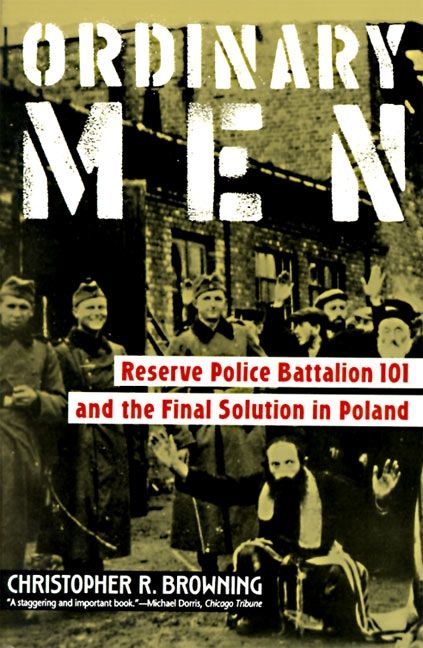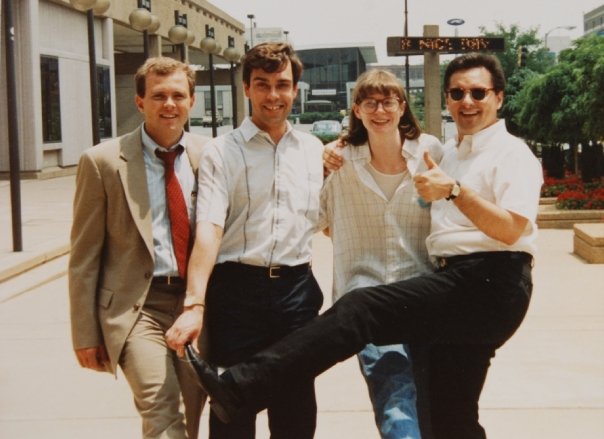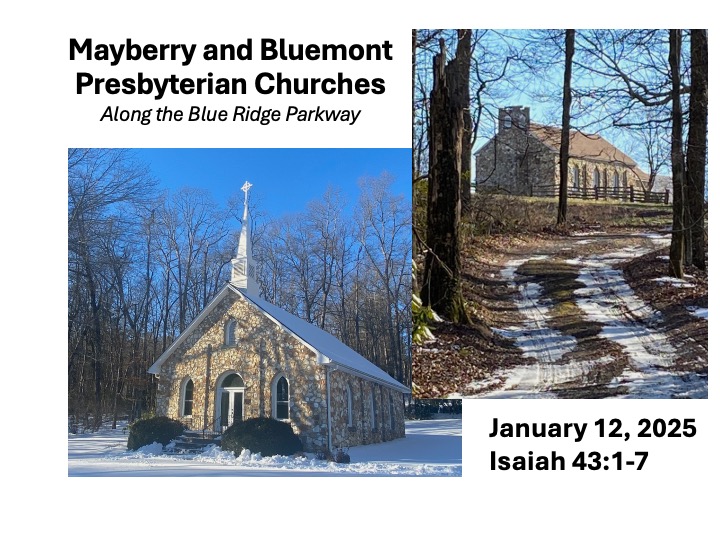Jeff Garrison
Mayberry and Bluemont Churches
Isaiah 43:1-7
January 12, 2024
At the beginning of worship:
As part of the human race, it seems we’re inclined to compare ourselves to others. Such behavior is widespread. I have a sneaky feeling it has something to do with original sin.
When I compare myself to a murder, I feel pretty good. So far, I have resisted the temptation to kill even those whom I felt, at the time, deserved such a fate. If I stack myself up against murderers and other dregs of society, I come out looking good. But what about when I compare myself to Jesus? Or, as we witnessed at his funeral this week, Jimmy Carter? Yet, we should not forget, even Jimmy acknowledged his sinfulness.
We can’t understand who we are if we only compare ourselves to others. If we consider Paul’s words, “all have sinned and fallen short of God’s glory,”[1] we might realize the danger of comparing ourselves to others. In fact, it would make us no better than our peers. Who wants to be average. Furthermore, it could allow us to commit injustices without even considering what we’re doing.
I recall Jimmy Carter’s book, which came out the year before he was elected President. It’s title, Why not the Best came from a question asked of him. It’s also a question we should all ask ourselves. Being our best means we do what is right and, instead of following the crowd, keep our eyes on the perfecter of our faith, our Savior.

One book, about following the crowd, has stuck with me over the decades. It’s by Christopher Browning a historian and titled: Ordinary Men: Reserve Police Battalion 101 and the Final Solution in Poland.[2] Police Battalion 101 was a group of regular working-class guys from Hamburg, Germany. They were not political. A few had even opposed the rise of Nazism, but mostly they ignored it.
These men were mostly too old for the regular army, so they were put into a National Guard type unit and sent into territories in which the army had already conquered. This battalion of 500 men became responsible for 83,000 deaths of innocent Jews in Poland.
In the closing of the book, Browning discusses the haunting implications of his study. How can a group of men who, at first, were repulsed at the thought of murder, become willing participants in the holocaust? After all, these were not hardcore Nazis. Peer pressure is a terrible thing. That’s why we shouldn’t compare ourselves to others, but only to Christ.
One of the things several people in Carter’s funeral reminded the crowd is how Carter often did things which he knew would hurt him politically. One was to appoint Paul Volcker as the Chairman of the Federal Reserve. Volcker warned Carter of his intention to raise interest rates to curve inflation. In the short run, he said, it would hurt the economy. And there was an election coming up, Volcker reminded him.
Carter told him, “You take care of the economy, I’ll deal with the politics.” Of course, the rates rose, and it didn’t help Carter’s economy, which was one of the reasons he was so vulnerable in the 1980 election.[3] But, by doing what’s right, Carter picked a man who set the course for our nation’s economic growth in the 1980s and 1990s.
We need to do what is right. We need to strive to be our best, which means we should compare ourselves to Jesus and none other.
Before reading the scripture:
As I announced last week, I plan to preach on the Old Testament passages from the lectionary, a suggestive set of passage to preach, between last Sunday through the middle of February. At that time, I will return to Mark and finish up my work through that gospel during Lent.
I often criticize the lectionary.[4] I know some preachers who prefer it and suggest it forces them to preach on passages they’d often skip. I, on the other hand, often find myself critical of the passages used and the parts left out. That’s true in our passage today. So, before I read it, let me inform you that this lovely piece of hopeful poetry stands in sharp contrast to the passage immediately before it.
We’re looking at the first seven verses in Isaiah 43. This is a passage, in which God blesses and restores Israel, ironically comes on the heels of the last five verses of 42. There, we’re told of Israel’s disobedience. Israel has been blind and deaf to God’s pronouncements and stand in need of punishment.
To gain a full understanding of God, we need both parts[5]. In our lives there are a chasm between who we are and who God created us to be. We live in a paradox. Yet, God loves us. We can’t separate our shortcomings and God’s grace. The two must be held in tension. In this manner, we won’t be tempted to seeing God’s blessings as a stamp of approval for our behaviors. No, God loves us despite who we are. That’s the good news. Seeing both sides—our failures and God’s faithfulness, should humble us. After all, without God’s grace, we’d truly be lost.
Read Isaiah 43:1-7
The 43rd Chapter of Isaiah opens wonderfully. The God who created us, who formed us out of the earth, also redeems us. Therefore, we shouldn’t fear. God through the prophet commands, “fear not.”
As I indicated before the reading of the passage, in the previous chapter, God pointed out Israel’s sin and need for punishment. You know, it’s fearful to be called into the principal’s office, or your bosses office for a redress. God authority is far greater than the principal or boss. God created us; God knows our name, so there’s no escaping responsibility for our sins.
I have struggled all my life to remember names, but I know it’s important. It feels good when someone important calls us by name.
In 1988, as a seminary student, I attended the General Assembly of the Presbyterian Church. It was held in St. Louis that year and the first order of business was the election of a moderator. That year, Ken Hall, pastor of Hill Presbyterian Church in Butler, Pennsylvania was elected.
I had spent the previous two years working for Covenant Presbyterian Church in Butler and had done some joint youth events with the Hill Church. I always worked with the associate pastor, and had only met Ken, the pastor there, once.

The night after the election, there was a moderator’s reception. I went with a bunch of other seminary students from around the country. We were in the receiving line. When we got up to Ken, I put my hand out to shake his. But instead, he stepped forward, saying “Jeff, I didn’t know you were going to be here,” and hugged me. All the other seminary students were impressed. It felt good.
God knowing name is not like the principal knowing my name. Instead, it shows that God cares.
There is a lot of theology packed into the first two verses of our passage. God created us, forms us, redeems us, knows our name, call us his own and refuses to abandon us when life becomes difficult. In verse two, we’re told that when we pass through the rivers, God is with us. This may draw for us images of baptism, and that’s okay, but think about the people in Western North Carolina, who lived along the Swannanoa River during Hurricane Helene. While baptism doesn’t promise us a carefree life, few expect the terror of those who endured the floods in Western North Carolina.
God also promises to be with those walking through fire. Certainly, those poor souls in Los Angeles this past week need to feel God’s presence. In this life we’re not promised a world without peril. But God promises not to abandon us. Furthermore, God promises to redeem us, to buy us back, which as I spoke of last week, is what Jesus did.
In a way, this passage repeats itself. In verses 2 and 5, we’re told not to fear. And after each, God provides a similar promise. The first is more general and is a reminder that as Israel goes into exile, they’re not abandoned. God stays by us during times of turmoil. The second involves God bringing us back home, which the descendants of those sent into exile experienced. After all, as the passage ends, God formed and made us for his glory. Ultimately, God’s grace isn’t just about us, it’s about God’s glory.[6]
If you think about this passage, you get a sense of the triune workings of God. God creates and forms us, as individuals and into a family of believers. When we stray from God’s path, God redeems us through his Son and our Lord, Jesus Christ. And finally, when we experience trouble, God through the Holy Spirit abides with us.
These are wonderful promises in Scripture. The God who chastises us, also lovingly rescues us.[7] In chapter 42, we see the trouble we’ve gotten ourselves into. We’re not deserving of God’s grace, but that doesn’t matter to God. God redeems us, not for what we’ve done, but for his own glory. That’s grace. For God loves us still. Amen.
In your prayers today, please remember those caught in the California wildfires. If lost for words, click here for a prayer to pray.
[1] Romans 3:23.
[2] Christopher Browning, Ordinary Men: Reserve Police Battalion 101 and the Final Solution in Poland, (NY: HarpersCollins, 1992).
[3] I think this was in the eulogy by the late Walter Mondale, which was read by his son. Of course, there were other reasons for Carter’s weakness in the 1980 elections, most notably the Iran Hostage Crisis.
[4] There are several lectionaries available for use. The one most protestant churches use is the Revised Common Lectionary. To learn more, check out this link: https://lectionary.library.vanderbilt.edu
[5] Paul D. Hanson, Isaiah 40-66, Interpretation, a Bible Commentary for Teaching and Preaching (Louisville, KY: John Knox Press, 1995), 59
[6] Claus Westermann, Isaiah 40-66, The Old Testament Library translated by David M. G. Stalker (1966, Philadelphia: Westminster Press, 1969), 118-119.
[7] See Meg Jenistra, “Isaiah 43:1-7.” See https://cepreaching.org/commentary/2025-01-06/isaiah-431-7-4/.


I think if we do our best to be good people that’s a start. Have a good week.
We’re to strive, but we should also realize we can never truly be satisfied with our efforts, which is why God’s grace is such good news.
I often fall into that trap of comparing myself to others, particularly those whom I feel are so much “better” than I am spiritually. I need to focus more on God’s love for me.
One of the things I have found is that few people who display a superior spirituality are superior. I recall the old joke supposedly told by Surgeon about a wonan who, at the front of the church after worship, bragged to him that she had not committed any sins all week. Surgeon smiled and said, “that must make you really proud.” “It does,” she said, without any humility. Comparing ourselves to Jesus only keeps us humble.